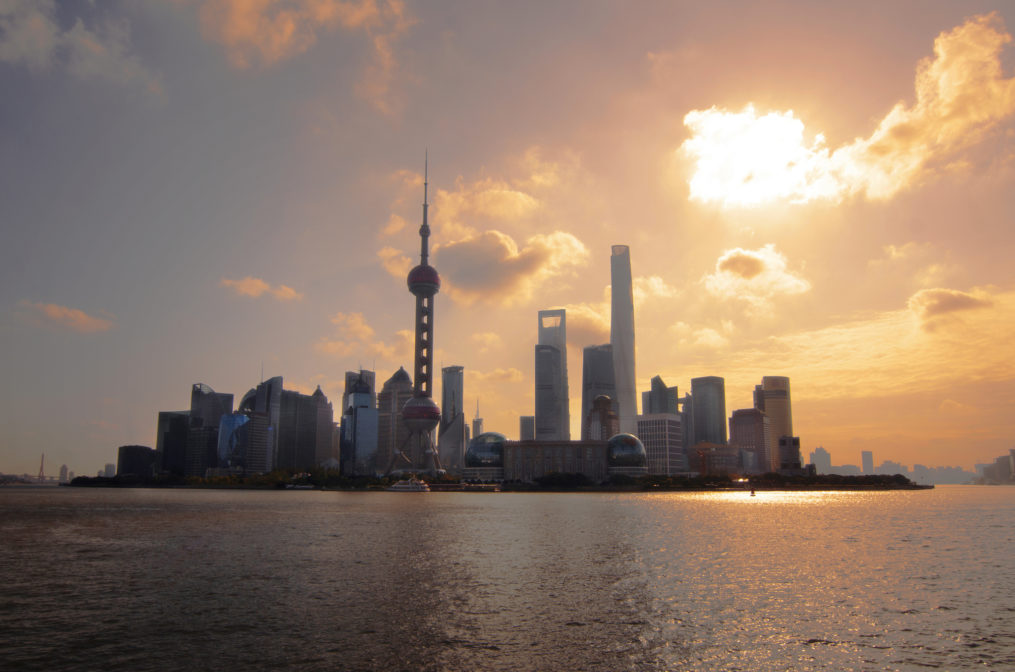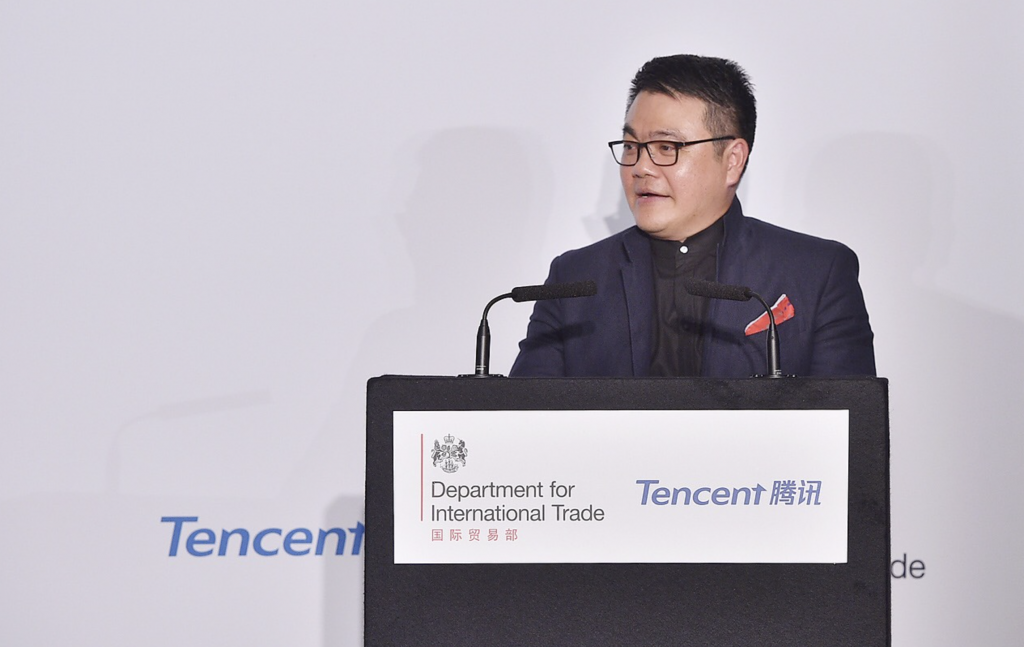Already a member? Sign in below

While you might not know the name ‘Tencent’, you’ll almost certainly have heard of many of its properties. From combined social networks and e-commerce platforms like WeChat, to its holdings in Snapchat, Riot and more, the China-based tech giant is expanding beyond Asia. Yesterday, in London, its Senior Executive Vice President Seng Yee Lau signed an MOU with the British Secretary of State for International Trade Rt. Hon. Dr Liam Fox MP for cultural collaboration around the creative industries, noting that London’s history of blending technology with tradition makes the UK a natural fit for a partnership.
Mr. Lau explained:
“London is a testament to the world that tradition and technology need not be opposed to one another.
“We have, to borrow a phrase, great expectations for our journey here because the mixture of technology and culture are at the heart of Tencent’s corporate ethos and strategy.”
Tencent’s creative approach to blending technology with tradition was highlighted earlier in the event, when Tencent’s Chief European Representative Dr Ling Ge mentioned the company’s WeChat red envelopes, which allow its users to digitally gift one another money in the form of digital versions of traditional hóngbāo. Ahead of panel discussions which saw examples of British advertising that similarly blends traditional British values with state of the art CGI and marketing tools, Dr. Ge noted:
“I see first-hand the amazing talent, capability, culture, and leading position that the UK has in these digital industries. I also am able to see directly the benefits of UK-China collaboration. Taking UK digital innovation to China’s huge user base offers great potential for benefiting both UK and Tencent.”
That similar mentality of ‘tradition with technology’ was demonstrated at the event by adam&eveDDB’s CEO James Murphy’s presentation, which featured the 2016 Creative Effectiveness Grand Prix-winning ‘Monty the Penguin’ campaign.
The CEO of the Advertising Association, Stephen Woodford, noted that the UK’s strong creative proposition could be seen in the success of its marketing and advertising industries, with the export of advertising services having grown 35 percent in the most recent set of figures. He noted that London in particular was a hub for technology companies, with 60 percent of the world’s top non-European countries having HQs in London, including Google, Facebook, Apple and Amazon.

Tencent is aggressively acquiring and pushing into areas in which it sees the potential for huge growth. In China, it is the publisher of PC and console games Player UnKnown’s Battleground and Fortnite: Battle Royale, effectively giving it a monopoly on two of the biggest esports titles. It is also the publisher of Arena of Valor (known as Honor of Kings in China), the most profitable game in the world. While the MOU covers all aspects of the creative industries, from marketing to Artificial Intelligence development, the gaming industry is set to be one of the biggest beneficiaries from the partnership.
Outside of gaming, its other entertainment holdings make it the cross-industry giant that Facebook is trying to be with its Watch and Marketplace products. Its television streaming platform, Tencent Video, has over 62 million subscribers, and has exclusive broadcast rights to sporting events and HBO’s Game of Thrones. It co-produced the landmark BBC documentary Blue Planet II under the aegis of its Tencent Penguin Pictures Documentary Studio, which is committed to producing many other shows and films.
Its app WeChat – which is nominally a social platform – has much more functionality than a typical Western app. In addition to chat, it allows for payments, buying and selling, ordering taxis, making appointments and still more. The app is so integral that it was responsible for fully 34 percent of the country’s data traffic last year.
Because of its focus on creative endeavours, Tencent described London and its businesses as the obvious choice for collaboration as it expands its operations with a strategic partnership in Cultural Creative Industries. All the participants in the signing of the MOU noted that the UK’s status as an early adopter, being the first market where digital advertising exceeded 50% of total expenditure.
Woodford noted: “When Google started out in the UK, they described us as their ‘test tube’ to the rest of the world. They felt the way the UK market responded to new technology was an indicator for how Western markets more generally would respond.”
While the full extent of the partnership is yet to be revealed, the event successfully demonstrated that the UK creative industry is still a huge draw for companies looking for expertise and demonstrable history in creative services.
Already a member? Sign in below
If your company is already a member, register your email address now to be able to access our exclusive member-only content.
If your company would like to become a member, please visit our Front Foot page for more details.